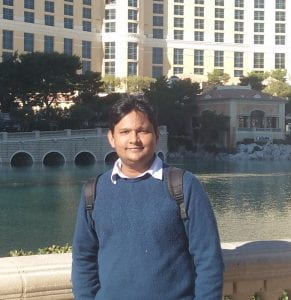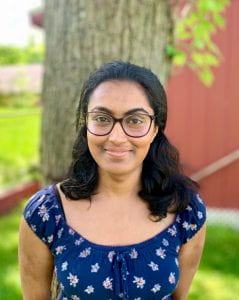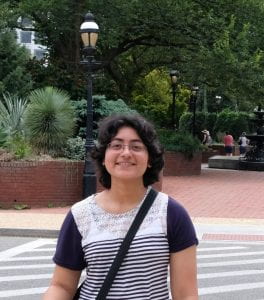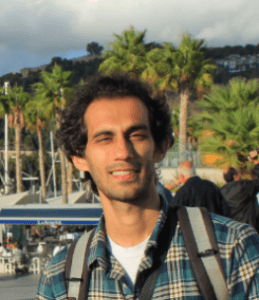Current Members
Thomas B. Wild
Assistant Research Professor (Earth System Science Interdisciplinary Center (ESSIC), University of Maryland) &
Assistant Research Professor (Center for Global Sustainability (CGS), School of Public Policy, University of Maryland) &
Affiliate Assistant Professor (Department of Civil and Environmental Engineering, University of Maryland) &
Research Scientist (Pacific Northwest National Laboratory, Joint Global Change Research Institute)
Dr. Wild is currently an Assistant Research Professor at the Earth System Science Interdisciplinary Center (ESSIC) at the University of Maryland. He is also jointly appointed as a Research Scientist at the Pacific Northwest National Laboratory’s Joint Global Change Research Institute. Broadly, his research focuses on identifying holistic solutions to complex systems challenges that occur at the intersection of disciplines. He seeks to craft methodological advances capable of improving the way we characterize, visualize, and manage coupled human-natural systems confronting uncertainty and change, and the infrastructure that drives their interactions. His work has spanned planning and management challenges in water resources and environmental systems, food-energy-water nexus systems, and deep decarbonization. This research has contributed to identifying and mitigating food-energy-water tradeoffs and conflicts, developing sustainable hydropower systems, managing fluvial and stormwater quality, equitably sharing transboundary resources, and identifying pathways for deeply decarbonizing the U.S. and Colombian economies. He has extensive international development experience related to water and energy infrastructure, including multiple projects in Asia and Latin America. In these projects, he often served in a stakeholder engagement and capacity building role, training large multidisciplinary groups to understand and use complex modeling tools. Dr. Wild holds M.S. and Ph.D. degrees from Cornell University in civil engineering, and a B.S. degree from the University of Maryland in civil engineering.
Mengqi Zhao
Postdoctoral Associate (University of Maryland, Earth System Science Interdisciplinary Center (ESSIC))
Dr. Mengqi Zhao is a postdoctoral associate at the Earth System Science Interdisciplinary Center (ESSIC) at the University of Maryland. Her research focuses on basin-scale integrated water resource management at the Food-Energy-Water Nexus. She is interested in studying the connections and feedbacks among environmental, ecological, social, and economic systems. Her work involves developing system dynamics modeling as an interactive tool for stakeholders to gain insights on adaptative management under future climate change. Her interests also extend to understand the impact of land use change on hydrologic patterns, physically based and gridded hydrologic modeling, and sensitivity and uncertainty analysis. Dr. Zhao holds a Ph.D. degree in civil engineering from Washington State University. She completed her M.S. degree in hydrology and water resources from Hohai University and B.S. degree in hydrology and water resources engineering from North China University of Water Resources and Electric Power.
Kamal Chowdhury
Postdoctoral Associate (University of Maryland, Earth System Science Interdisciplinary Center (ESSIC)), starting June 2021
Dr. Kamal Chowdhury is a postdoctoral associate at the Earth System Science Interdisciplinary Center (ESSIC) at the University of Maryland. He is also part of the Global Change Intersectoral Modeling System research team, led by the Pacific Northwest National Laboratory. Kamal’s research focuses on resilient operations and sustainable planning of water and energy systems. He uses the Global Change Analysis Model (GCAM) with a focus to improve its representation of reservoir operations at river basins across the globe. He also works on operations and planning of hydropower and overall energy systems of Southeast Asia and Southern Africa considering the effects of droughts, climate change, solar and wind resources, and transmission facilities. These works support policy decisions to minimize operating and investment costs, greenhouse gas emissions, and socio-environmental impacts of water-energy infrastructures. Kamal developed PowNet – a least-cost optimization model for power systems analysis, and contributed to VIC-Res – a hydrologic model to simulate reservoir operations. Before joining ESSIC, Kamal completed postdoctoral jobs at the Singapore University of Technology and Design and University of California Santa Barbara. He holds a PhD in civil engineering from the University of Newcastle, a graduate certificate in engineering geology from University of Twente, and a B.S. in civil and environmental engineering from Shahjalal University of Science and Technology.
Brinda Yarlagadda
Ph.D. Student (University of Maryland, School of Public Policy)
Brinda Yarlagadda is a PhD student in the School of Public Policy at the University of Maryland. Her research is focused on regional and sub-regional modeling of food-energy-water nexus systems in Argentina and Uruguay, and their connections to policies at national and global scales. Prior to joining UMD, she was a post-bachelors research assistant at the Joint Global Change Research Institute. There she modeled air pollution, energy system, and climate mitigation policies and interactions in India, China and elsewhere using the Global Change Assessment Model (GCAM) and contributed to model development. Brinda holds a bachelor’s degree in environmental engineering from the University of Michigan.
Anoushka Shahani
Undergraduate Student (University of Maryland, Department of Computer Science)
Anoushka Shahani is pursuing a major in Computer Science at the University of Maryland. Her coursework has included Object Oriented Programming in Java, Calculus, Public Policy, etc. She is a part of the iGive community at UMD, which focuses on Leading and Investing in Social Change, Re-defining and Experimenting with Philanthropy. She is keen on acquiring new skills in computer science and applying them to real world problems. Anoushka is also passionate about addressing pressing global issues.
Other Affiliates
Zarrar Khan
Research Scientist (Pacific Northwest National Laboratory)
Dr. Zarrar Khan is a postdoctoral research associate at the Joint Global Change Research Institute (JGCRI) at the Pacific Northwest National Laboratory (PNNL). His research focuses on modelling and analyzing interconnected human and earth systems within a holistic integrated framework. In particular he is interested in developing tools and methodologies to promote stakeholder engagement and facilitating the analysis of global modeling outputs in the context of local issues. His current projects involve developing a water-energy-food nexus modeling framework in Colombia, Uruguay and Argentina, working on energy and water issues in India and Pakistan, and enhancing the JGCRI modeling capabilities to capture system dynamics at finer spatial and temporal resolutions. Prior to joining JGCRI Zarrar worked as professional geotechnical engineer on international infrastructure, rail and hydropower projects. Dr. Zarrar completed his PhD in a Joint Doctorate program awarded by the Universidad Pontificia Comillas, TU Delft, and KTH. He holds a master’s degree in geotechnical engineering from Cornell University, a master’s in project management from COMSATS University and a bachelor’s in engineering and environmental studies from Dartmouth College.
Leon Clarke
Research Professor (University of Maryland, School of Public Policy) &
Research Director (University of Maryland, Center for Global Sustainability) &
Research Scientist (Pacific Northwest National Laboratory, Joint Global Change Research Institute)
Dr. Clarke is the Research Director for the Center for Global Sustainability (CGS) and a Research Professor in the School of Public Policy. Dr. Clarke is an expert in energy and environmental issues, with a focus on climate change, climate change mitigation strategies, energy technology options, and integrated assessment modeling. At CGS, Dr. Clarke focuses on the use of quantitative methods and modeling in support of policy and other decisions. Current activities include low-emissions development strategies in China, India, and Latin America, energy-water-land planning in Latin America, and climate mitigation by U.S. cities, states and businesses. As Research Director, Dr. Clarke oversees the development and execution of CGS’s research portfolio.
Dr. Clarke formerly led the Integrated Human Earth System Science Group and directed a range of integrated assessment modeling activities at the Joint Global Change Research Institute, a collaboration between the Pacific Northwest National Laboratory and the University of Maryland. Dr. Clarke has served as an author and coordinating lead author for the Intergovernmental Panel on Climate Change (IPCC), the National Climate Assessment, and the National Research Council. He is currently a coordinating lead author in the IPCC’s 6th Assessment Report. He has also led a number of multi-institution modeling studies on climate mitigation. He is the Co-Editor and Chief of the Energy and Climate Change. Dr. Clarke’s has worked at two U.S. national laboratories, in energy consulting, and at an electric and gas utility. He holds a Ph.D. in Management Science and Engineering from Stanford University and a Masters degree in Mechanical Engineering from the University of California at Berkeley. Dr. Clarke enjoys backpacking, cooking, brewing beer, and following the Nationals and the 49ers.






